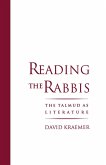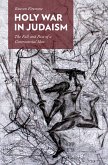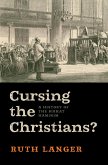Conventionally, the history of the rabbinic movement has been told as a distinctly intra-Jewish development, a response to the gaping need left by the tragic destruction of the Jerusalem Temple in 70 CE. In
Rabbis as Romans, Hayim Lapin reconfigures that history by drawing sustained attention to the extent to which rabbis participated in and were the product of a Roman and late-antique political economy. Rabbis as a group were relatively well off, literate Jewish men, an urban sub-elite in a small, generally insignificant province of the Roman empire. That they were deeply embedded in a wider Roman world is clear from the urban orientation of their texts, the rhetoric they used to describe their own group (mirroring that used for Greek philosophical schools), their open embrace of Roman bathing, and their engagement in debates about public morals and gender that crossed regional and ethnic lines. Rabbis also form one of the most accessible and well-documented examples of a "nativizing" traditionalist movement in a Roman province. It was a movement committed to articulating the social, ritual, and moral boundaries between an Israelite "us" and "the nations." To attend seriously to the contradictory position of rabbis as both within and outside of a provincial cultural economy, says Lapin, is to uncover the historical contingencies that shaped what later generations understood as simply Judaism and to reexamine in a new light the cultural work of Roman provincialization itself.
Dieser Download kann aus rechtlichen Gründen nur mit Rechnungsadresse in A, B, BG, CY, CZ, D, DK, EW, E, FIN, F, GR, HR, H, IRL, I, LT, L, LR, M, NL, PL, P, R, S, SLO, SK ausgeliefert werden.









